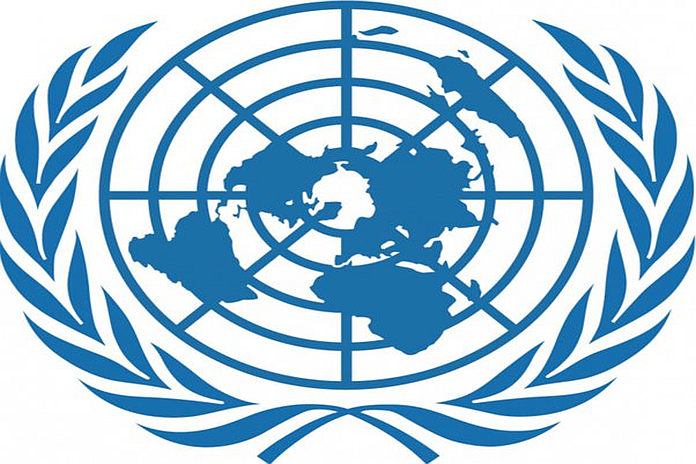– In Dialogue with Hong Kong Special Administrative Region of China, Experts of the Human Rights Committee Welcome Legislation Supporting Same-Sex Couples’ Access to Housing and Visas, Raise Issues Concerning the National Security Law.
GENEVA, Switzerland – The Human Rights Committee on July 12, concluded its consideration of the fourth periodic report of Hong Kong special administrative region of China on how it implements the provisions of the International Covenant on Civil and Political Rights, with Committee Experts praising legislation improving same sex couples’ access to public housing and visa, and asking about rights restricted by the National Security Law enacted in June 2020.
A Committee Expert welcomed that the High Court of the Hong Kong special administrative region of China had ruled that married same-sex couples should be allowed to apply for public housing. In 2018, the court also made a landmark judgment granting spousal visas to same-sex couples. What measures, the Expert asked, had been taken to protect lesbian, gay, bisexual, transgender and intersex persons from hate speech and hate crimes?
Several Committee Experts expressed concern about the National Security Law. One Expert said that this law was promulgated by Beijing overnight without consultation, bypassing the local legislature. The Expert reported that there was a growing number of persons being convicted under this law for innocuous acts such as publishing children’s books and clapping in court. How did those legitimate exercises of free expression rights constitute national security crimes?
Another Expert expressed concern over statistics showing that national security police had over two years arrested 201 individuals for allegedly endangering national security, among which a total of 125 individuals and five companies had been charged. Nine of the charged persons were underage, and three were only 15 years old. Why, the Expert asked, had more than half of persons arrested under this law been remanded without trial for more than one year?
The delegation said that there were views that the government should implement laws to protect lesbian, gay, bisexual, transgender and intersex persons, but there were also views that the government should maintain traditional family values. The government, therefore, needed to be cautious in this regard.
Erick Tsang Kwok-Wai, secretary for constitutional and mainland affairs of Hong Kong special administrative region of China and head of the delegation, introducing the report, said that from June 2019, Hong Kong special administrative region of China had been held hostage by rioting mobs who committed acts of secession, violence and terrorism. To suppress those activities, the Standing Committee of the National People’s Congress had adopted the National Security Law in June 2020.
The delegation said that the National Security Law had played an important role in stabilising Hong Kong special administrative region of China and there were no immediate plans to repeal it. It added that cases involving national security were handled fairly and in accordance with the law. Processing times of such cases depended on the time taken to collect evidence. If a minor was charged with a national security offence, the court considered the defender’s age and likelihood of reoffence. The judiciary aided young people on remand.
In his concluding remarks, Kwok-Wai said that the dialogue had allowed for frank and constructive exchanges to dispel doubts on the human rights situation in Hong Kong special administrative region of China. The National Security Law was vital in safeguarding sovereignty, security and development interests. Hong Kong special administrative region of China was firmly committed to protecting human rights and sought to improve these rights through legislation and policy.
Photini Pazartzis, committee chairperson, in concluding remarks, welcomed the Government’s commitment to protecting human rights and freedoms. The Committee, she said, had raised concerns regarding the protections of human rights mainly against the backdrop of the National Security Law. These concerns related to fair trial guarantees, independence of the judiciary, freedom of the press, and freedom of association. Pazartzis concluded by stating that, in a democratic society, freedom of speech, expression and participation, and pluralism should not be unduly restricted.
The delegation of Hong Kong special administrative region of China was made up of representatives of the Constitutional and Mainland Affairs Bureau; Department of Justice; Education Bureau; Security Bureau; Hong Kong Police Force; Labour Department; and the Permanent Mission of Hong Kong special administrative region of China to the United Nations office at Geneva.
The Human Rights Committee’s one hundred and thirty-fifth session is being held from 27 June to 27 July. All the documents relating to the Committee’s work, including reports submitted by States parties, can be found on the session’s webpage.
Meeting summary releases can be found here. The webcast of the Committee’s public meetings can be accessed via the UN Web TV webpage.
The Committee is next scheduled to meet in public at 10 a.m. on Wednesday, 13 July, to consider the second periodic report of Macau special administrative region of China (CCPR/C/CHN-MAC/2Opens in new window).





